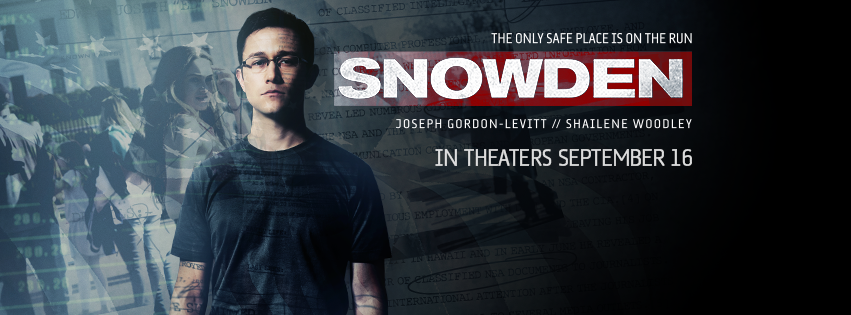Review: ‘Snowden’

Most people don’t pay enough attention to the world of information security or even their own rights to privacy. However, today’s reality is that everyone can be easily spied upon and examined through collective banks of data stored on the internet, such as social media, e-mail and messaging programs. An even bigger threat to privacy is that the United States government can even tap into phones and laptops to utilize microphones and cameras at will and without any sort of court order.
For those who have been aware, it’s still a sobering point to hear. So sobering that even director Oliver Stone’s plea for you to silence your cell phone before the movie begins is presented in such a manner that makes you think about turning off your device for reasons far more important than keeping the movie theater undisturbed. That’s ultimately the effect “Snowden” has on you by the time the credits roll. You’re going to leave the theater wondering if now is the time to encrypt text messages with loved ones.
“Snowden” tells the story of former CIA and NSA employee Edward Snowden’s career and the eventual actions that lead to his leak of thousands of classified government documents to British Newspaper The Guardian. The movie plays out like a procedural, with its timeline accompanied by the love story of Snowden, played by Joseph Gordon-Levitt, and his girlfriend Lindsay Mills, played by Shailene Woodley. Events follow Snowden as far back as his attempt to serve in the U.S. Army, through his time as a CIA employee and his return to the surveillance field as an NSA contractor employee before the leak and his current exile to Russia.
Levitt’s character is portrayed in a sort of double-life, being forced to keep his career a secret while maintaining a level of trust in his long-term relationship. This makes Snowden appear extraordinary when he has his fingers to a computer, as you would expect, but still within the realm of familiarity when he returns home to his girlfriend throughout the film.
Scenes which portray Snowden’s technical forte come across as more realistic than the type of science fiction hacking other movies would lead you to expect. Careful nods related to tech culture are noted in scenes like this, even down to things like the era-specific uTorrent icon on Snowden’s desktop taskbar and his accompanied Electronic Frontier Foundation sticker fixed to his laptop lid. Likewise, for the non-geeks, the dramatizations within the love story evoke an empathetic feeling for any long-standing couple that’s needed to come to a compromise on their ways of life. The film keeps a good balance between these two stories before coming to a climax with Snowden’s actions.
If you pay attention to the news or are a person privy to politics, then it’s very likely you already have made a decision in the debate of whether the government-whistleblower is a modern American hero or if he’s a disloyal traitor. From my viewpoint, this movie isn’t intended to change public opinion. It’s a call to action for the public to become more aware of the issue of global surveillance and a personal right to privacy.
In addition to the screening of the film, I was invited to attend a live panel interview broadcasted among 800 theaters by Fathom Events. The panel consisted of actors Joseph Gordon-Levitt and Shailene Woodley, director Oliver Stone and Edward Snowden via video link from Moscow. Questions asked toward the panel mostly consisted of those about specific events in the movie such as: which events were dramatized, if the top-secret documents were really smuggled out via Rubik’s Cube, and what real-life Snowden’s impressions of his Hollywood counterparts were upon their first meeting.
However, when the topic of privacy and security came about at the end of the interview, Snowden’s demeanor changed quite quickly from jovial to serious and the tone of the entire event was made clear. The purpose of “Snowden” isn’t completely to make him seem like an American hero or to make his likeliness for a presidential pardon more possible, but to bring more attention and focus to the matter of everyone’s right to privacy. He stated the NSA isn’t everyone’s enemy, but it doesn’t mean the public should be caught off-guard without any means to protect themselves.
He also tackled a common argument of why people should be more apt to securing their privacy, even if they seem to have nothing to hide by simply stating along the lines of, “giving up your right to privacy because you have nothing to hide is like giving up your rights to free speech because you have nothing to say.” His speech on security ended with suggesting that people can start protecting themselves as easily as installing an encryption app for their smartphone.
All in all, “Snowden” brings to light the need for privacy awareness with our digital lives. The movie holds up as a Hollywood docudrama and encourages you to think about how your personal data and connectivity is secured. “Snowden” was released to theaters Sept. 16, 2016.

